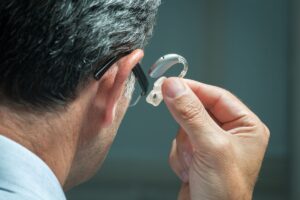
Keloids: The disease
When a part of skin undergoes trauma, there can be many types of scars which can take place. They include hypertrophic scars, keloids scars, acne scars and contracture scars. Keloids happen to be a result of an aggressive healing process. Keloids may even prevent movement if they enlarge too much. There are many allopathic treatments available with the medical science, but one can also counter it with the help of some natural home remedies which are free from side effects and also effective over a period. Keloids are many times taken as hypertrophic scars as they are similar, except that the hypertrophic scars never cross the boundary of the wound which Keloids do. Any skin injury can lead toKeloidalscarring – cuts, burns, vaccinations, surgical incisions, acne, chicken pox, so on and so forth. Keloids are raised on the surface of the skin, and they can be light pink to brown. Keloids can become itchy and red as they tend to enlarge. This can also result in irritation when clothes and other accessories cause friction. Hence the patient feels much discomfort in routine life and activities.
- Are Keloids hereditary?
Keloids tend to have a genetic disposition. They are also found more in darker skinned people than light-skinned people as per some of the researchers conducted by the experts in the field. This puts African and Asian people more at risk of developing Keloids rather than the Caucasians. Prevention is known as better than cure, and so people with this disposition must avoid body piercings and any other kind of skin injury which can lead to this traumatic condition. If injuries occur, one must immediately treat it, to reduce inflammation. There are some known and easy options available for treating them if the disease is yet in the primary stage.

- Treating with natural remedies
Aloe Vera has been famous for treating scars. It also has soothing properties to help with the itchiness and irritation on the Keloids. Tea tree oil helps with lightening the scars as well since it has antibacterial, antifungal and antiviral properties. These have also been remedies for treating acne scars. Massaging apple cider vinegar on your scar can help you eliminate dead skin cells. The bioflavonoids present in onion juice like quercetin, cephalin, and kaempferol helps improve scar-lightening. Emu oil helps with inflammation as it has anti-inflammatory properties. Shea butter and coconut oil help keep the skin moisturized and hydrated and ensures that the scar doesn’t get larger. Other oils like jojoba oil, rosehip seed oil, lavender oil and neem oil help to keep the skin moisturized for faster healing. Pastes made of aspirin and water, sandalwood and rosewater, fullers earth and rosewater, help exfoliate and with the inflammations. Raw honey can also be used to massage the scars since it inhibits anti-bacterial and humectant properties. Garlic oil is another alternative which can be massaged on the scar as well.






